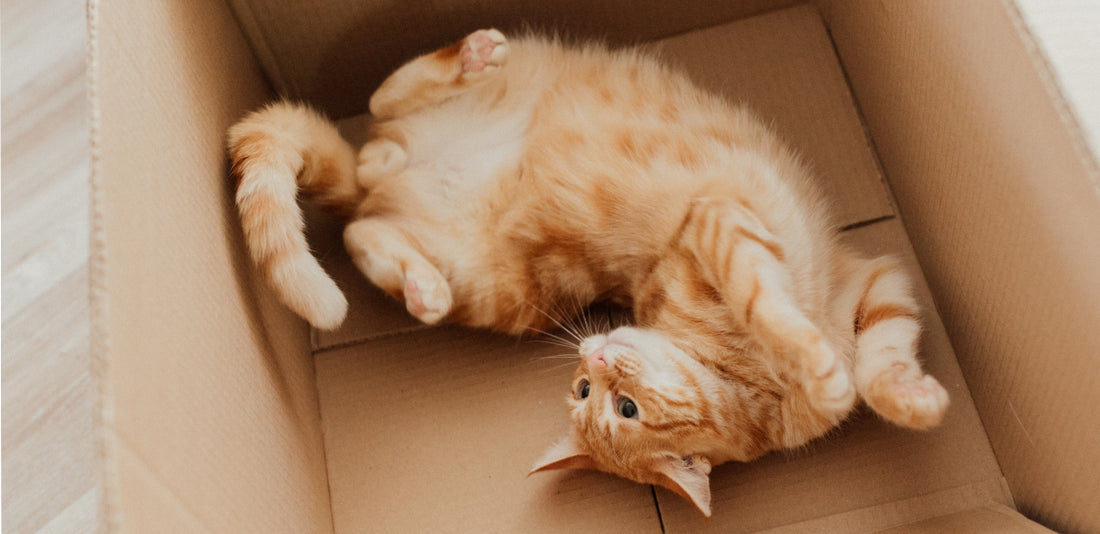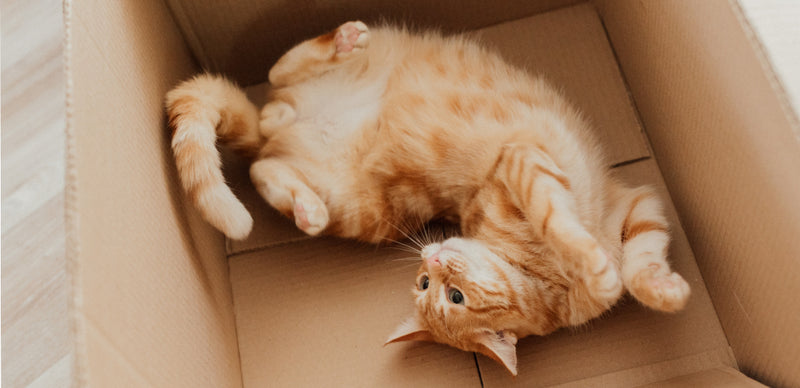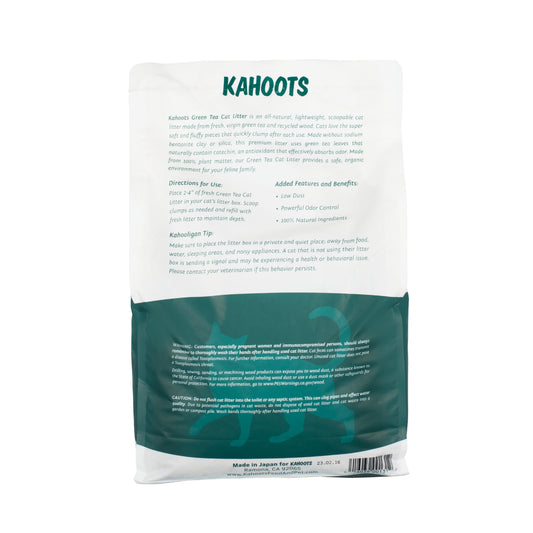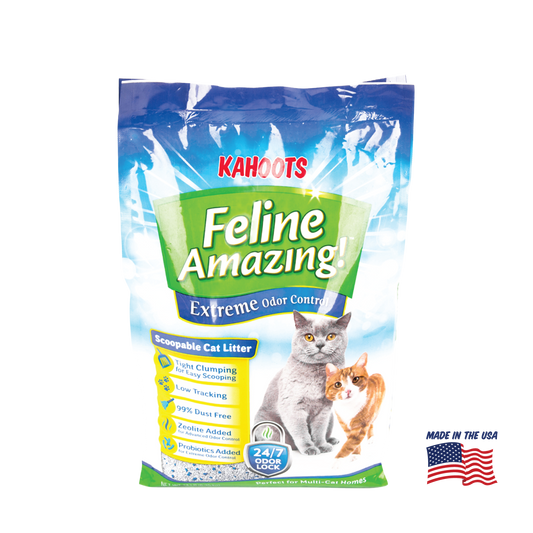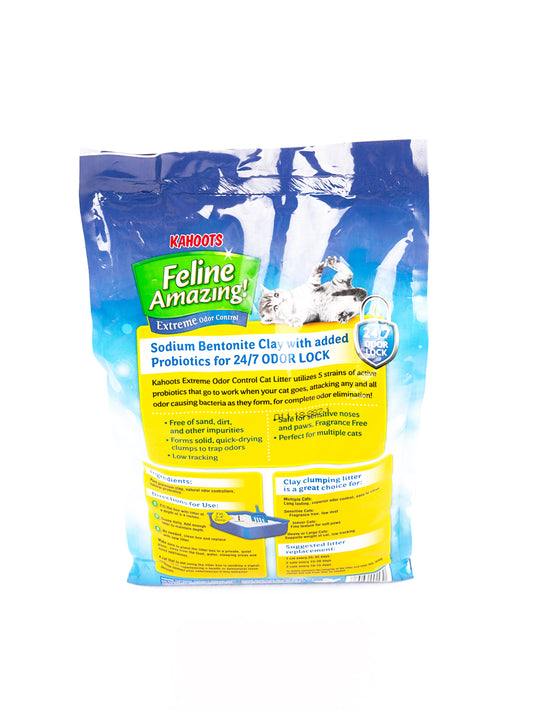There are many reasons why a cat might potty outside of its litter box. In this blog post, we will cover four of the most common root causes. If your cat is having trouble using the litter box, it is important to identify the root cause so that you can fix the problem. Let's get started!
Is it the box?
Some cats develop an aversion to their litter box. This can be caused by a number of things, including an overly dirty litter box, a change in box location, changes in the room where the box is located, having to share with another cat, a change in litter type, or even stress.
One common reason why cats potty outside of the litter box is because they do not like the smell or texture of the litter you are using. To rule this out for your cat, try switching to a wheat-based or wood-based litter instead of clay; or vice-versa. Some cats might even prefer unscented litter. Regular cleaning is also important to make the litter box as attractive as possible.
Are you unsure which type of litter your cat prefers? Simply experiment with different types until you find one that works best for them. This may be a messy process. But once you find your cat’s favorite, eliminating litter box aversion will be well worth it!
Medical issues
Certain medical conditions can cause a cat to potty outside of the litter box. These include arthritis, gastrointestinal issues, and urinary tract infections. Your vet will be the ultimate authority on whether your cat's behavior is due to a medical issue. However, here are some other warning signs to watch out for.
If your cat is urinating and pooping outside of the box, it could be a sign of a urinary tract infection. This is especially true if your cat is also straining to urinate or if you spot blood in its urine. Urinary tract infections are relatively common in cats, and they can be treated with antibiotics. If you believe that your cat might have a UTI, or they have Urinary issues that last longer than 24 hours, it is vital that your cat is seen by a vet for treatment.
You can also help prevent urinary tract issues by increasing the moisture in your cat's diet. Increasing your cat's water intake, preferably by feeding more wet food than dry food, dilutes the irritants, toxins, and minerals that often cause urinary tract problems. The less diluted with water your cat's urine is, the more likely it is to form crystals and urinary stones, become inflamed, and lead to infection.
Increasing moisture like this is one of the most important steps toward keeping your cat's urinary tract healthy. More water also means they stay hydrated and urinate more frequently, which flushes out toxins, maintains kidney function, and encourages them to use the litter box appropriately.
Gastrointestinal issues can also lead to pottying outside the litter box. Cats with diarrhea or constipation may avoid using the litter box because they associate it with pain. Just like people, when a cat is in pain, they will try to avoid anything that they think makes the pain worse, including their litter box.
Arthritis and other joint problems can make it difficult for your cat to get in and out of the litter box. Stiff, painful joints make simple actions like walking, sitting, and standing up difficult. Watch them move around (especially if they’re older). If otherwise easy movements seem difficult, solving their potty issues may be as simple as making the litter box more accessible for them.
This can be done by using a low-sided litter box, placing a ramp up to the top of the box, or placing the box on a non-skid mat. You can also introduce joint health and support supplements to your cat’s daily routine—or even CBD oil for pain and inflammation.
Anxiety or stress
Cats are notoriously sensitive creatures, and stress can be a major trigger for accidents. If your cat is peeing or pooping outside of the box, look for signs of stress in their environment. Are there other cats in the house? Have you recently moved? Changes in routine can be stressful for cats, so trying to keep things consistent will help to take their stress down to a minimum.
In order to keep things as stress-free as possible, provide your cat with a litter box in a quiet, private place. Cats like to have their own space, so making sure the litter box is not in a high-traffic area will help them feel more comfortable. Avoid placing the litter box near where your cat eats or sleeps. Cats are clean animals and they do not like to use the same place for both eating and potty. Additionally, for houses with multiple cats, a general rule is to have one litter box per cat, plus one extra. So if you have two cats, you should have three litter boxes.
You should also avoid using punishments when your cat has an accident. This will only make them more anxious and stressed, which will likely increase the frequency of accidents. Instead, try to provide positive reinforcement when they use the litter box correctly.
Territorial marking
Cats are territorial animals and they often use pooping and spraying outside the litter box as a way to mark their territory. New pets being introduced to the home may trigger your cat’s territorial instinct and lead to marking or pooping in places they shouldn't be. If you’ve recently added a new pet to your family, Try to give your cat some extra attention and make sure they have plenty of toys and scratching posts to help them feel comfortable in their home.
If you think territorial marking might be the issue, here are a few other things you can try to stop it.
First, neuter or spay your cat. This will help reduce their urge to mark their territory. You can also try using Feliway, a calming pheromone spray that can help reduce stress and anxiety in cats. Combine pheromone sprays with our stain and odor remover, and you will alleviate nearly all scent-based aversion. Finally, make sure that there are enough litter boxes for each cat in your house.
This way you can help your cat feel comfortable using the litter box and reduce the chances of accidents.
If your cat is pooping or peeing outside of the litter box, you can be sure about at least one thing: they are not comfortable or happy. It is important to take action to identify the root cause of their discomfort and resolve the issue so they can get back on track.
Thanks for reading our article on why your cat might be doing their business outside of their litter box! If you have any questions, we're always happy to answer them! You can give us a call, shoot us an email, or stop by your local Kahoots Pet and Feed store.

